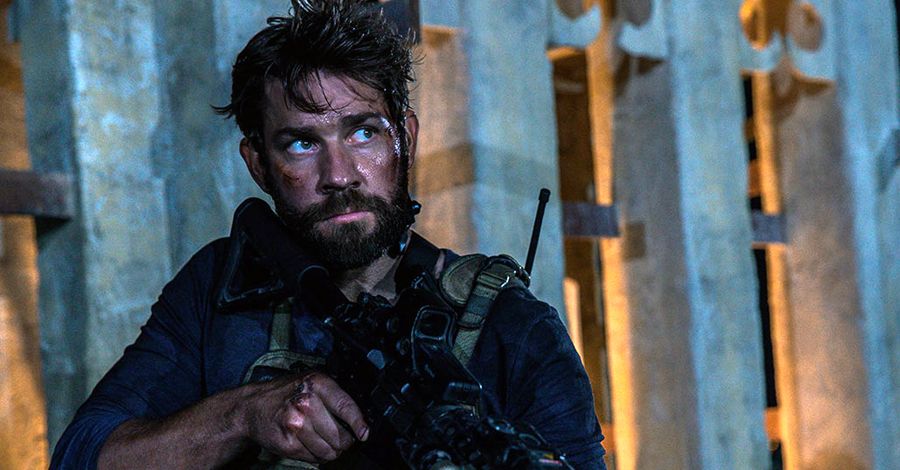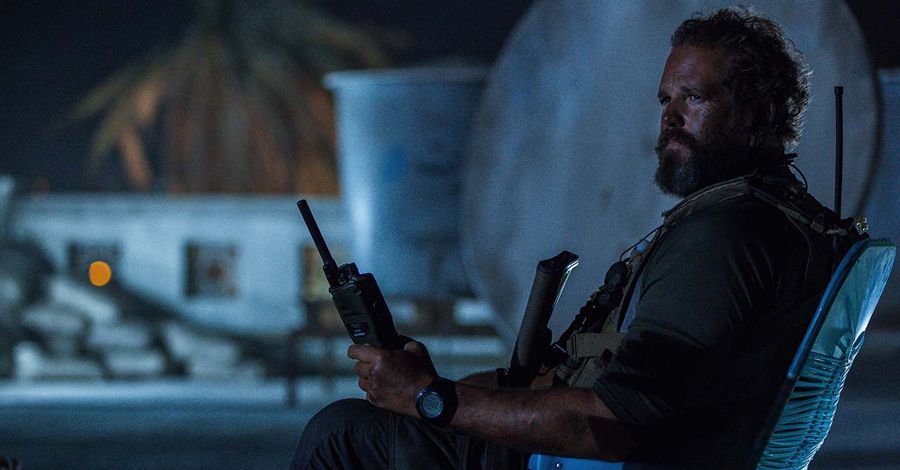More than three years later, the Battle of Benghazi remains a subject of intense political debate. However, the further away we move from the events of Sept. 11, 2012, the more obscured the truth becomes.
Remarkably, Michael Bay -- the king of big, mindless popcorn movies -- has arrived to try to set the record straight with "13 Hours," a docudrama that brings the director's braggadocio style to a story that's as harrowing as it is humane.
Bay is less a critic darling than he is a punchline, but he's a hell of a filmmaker; "Pain and Gain" was one of my Top 10 movies of 2013. Sure, he's better known for action spectacles about giant extraterrestrial robots than heartrending human drama, but beneath Bay's love of explosions is a desire to tell thrilling and uplifting stories. Of course, "uplifting" isn't the first word that comes to mind when you think of the conflict that saw a band of six ex-military security contractors defend a bare-bones diplomatic outpost against an all-out assault by Libyan militants, but more than a tragic story of violence and loss, "13 Hours" is a tale of tenacity, teamwork and survival.
Based on actual accounts, "13 Hours" places audiences in the shoes of the resilient men who risked their lives to save more than 30 U.S. government and CIA employees. Newly chiseled and steely-eyed, John Krasinski ("The Office") stars as Jack, a family man on his 12th assignment in a hostile spot as his wife struggles to keep things afloat for their daughters back home. By his side is his old war buddy, Tyrone, played by James Badge Dale ("Iron Man 3," "Rubicon) as a rogue cop in the vein of "Die Hard"s John McClane. He oozes macho charm as he spouts lines at his red-tape loving CIA supervisor like, "Maybe you haven't heard, but it's open season on Americans in Benghazi right now," and, "You aren't giving orders anymore. You're taking them. You're in my world now."
Visually, "13 Hours" is spectacular, rich with saturated color, smooth-moving cinematography, eye-catching low angles that make its heroes seem monumental, and slow-motion shots that pull you to the edge of your seat. In an effort to depict the events as accurately as possible -- down to the number of rounds fired, I'm told -- Bay knew to keep humor in the mix, because that too is true to story. Krasinski and Dale are part of an onscreen brotherhood that includes David Denman as the philosophical Boon, Max Martini as the no-nonsense Oz, Dominic Fumusa as the thoughtful Tig, and Pablo Schreiber as the joking Tanto. Their bond is forged on fraternity that includes busting each other's balls, even when things are bleak. Those moments of levity help to puncture the film's mounting tension, to allow the audience a breath, and to remind us these are men, not superheroes.
These vibrant performances make "13 Hours" emotionally riveting, but it's Bay's skill for action sequences that effectively hurls audiences into their world of gunfire and confusion. These men don't speak the local language, and face a threat that's essentially invisible: the locals -- whether allies or enemies -- don't wear identifying uniforms, so whenever we come across a new set of Libyans, we, like the film's heroes, are gutted with tension. Bay also avoids subtitles, further binding us to the Americans as they struggle to comprehend their situation.
However, "13 Hours" isn't jingoistic, and it doesn't paint Libyans at large as the enemy. Instead, the film follows the lead of its protagonist,s recognizing that some Libyans are allies, like plucky translator Amahl (Peyman Moaadi), who repeatedly risks his neck in service. Bay peppers the film with shots of Libyan children playing in the empty fields that surround the secret CIA hold, frolicking in the streets populated with armed men, and finally weeping -- alongside stricken mothers -- over the dead the morning after. Bay wants us to remember those innocent in this fray -- it's a point softly made, but powerfully felt.
I wasn't sure what to expect from Bay's Benghazi movie, but it's safe to say I didn't expect subtlety. Yes, there are plenty of flashy Hollywood lines lik,e "You can't put a price on living with yourself," and, "Warriors aren't trained to retire," but those flourishes give a poetry to the raw terror of that terrible night. The bold colors make it a vivid nightmare, a smart foil to its ensemble's charismatic and complex portrayals. And there's one juxtaposition so simple and stark it haunts me: A CIA agent calls desperately to an allied airfield in a nearby nation, begging for a flyby to "put the fear of God and America" into the enemies at their gates. She fumes that ignoring this distress call could mean every single American in Benghazi will die. Then Bay cuts to a dark blue field of grounded planes. The silence from their inactive engines is positively chilling.
"13 Hours" powerfully threw me into a place I'd never want to be. What those men witnessed and survived is so horrific that my stomach churned with tension. The score -- driven at times by relentless war drums -- made my heart race. I gasped in terror and teared up in grief. Yet I also laughed and felt embraced in this brilliant brotherhood. This isn't simply a story of loss: Every life those six men saved was a hard-fought victory.
"13 Hours" opens Friday nationwide.


